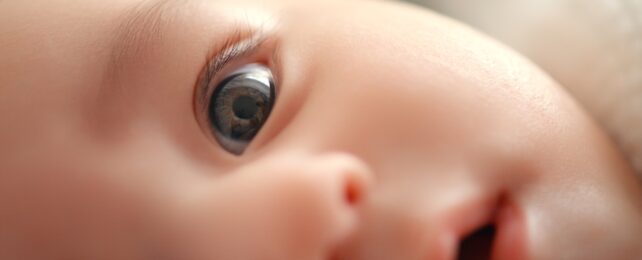Those blissfully peaceful months we spend in the womb before being born could be where our language learning starts, according to a new study that offers fresh insights into the ease with which newborns are able to pick up listening and speaking skills.
A team of researchers, led by experts at the University of Padua in Italy, observed specific changes in brain patterns in newborns when the babies were exposed to speech – suggesting that their brains are already attuned to their mother's language, and to the basic rhythms of speech.
"These results provide the most compelling evidence to date that language experience already shapes the functional organization of the infant brain, even before birth," write the researchers in their published paper.
The study setup involved 33 newborns, aged between one to five days, with French-speaking mothers. The babies were played audio of the Goldilocks and the Three Bears story in French, in English, and in Spanish.
Via caps fitted with electrodes, the researchers noticed something different when the French audio was played last: more long-range temporal correlations, which are brainwaves linked to the way we perceive and process speech.
That suggests that right after birth, we're already able to recognize and absorb the language we've been hearing while in the womb (we know that external sounds can be heard after about seven months of gestation).
In addition, the team found that these brain oscillations, activated by French, were at a particular frequency associated with the natural rhythms of speech. We're ready to start learning how to talk, it seems, even when we're just a few days old.
"The newborn brain may thus already be in an optimal state for the efficient processing of speech and language, underpinning human infants' unexpected language learning abilities," write the researchers.
While previous research has shown that we're most likely listening while in the womb – consider the way babies prefer their mother's voices, for example – this study was designed to look more closely at the neural activity that's going on in newborns.
Of course, babies are perfectly capable of learning a different language to their birth language – this doesn't mean that we're tied to the language our mother speaks. However, it does show evidence that learning starts before birth.
The researchers suggest that one next step could be to look at how other types of audio might impact the brains of newborns: There's already evidence that we're able to recognize music that we've previously heard in the womb.
"Future neuroimaging studies will be necessary to test whether this learning is similarly accompanied by changes in neural temporal dynamics of the type we observed here for language," write the researchers.
The research has been published in Science Advances.
